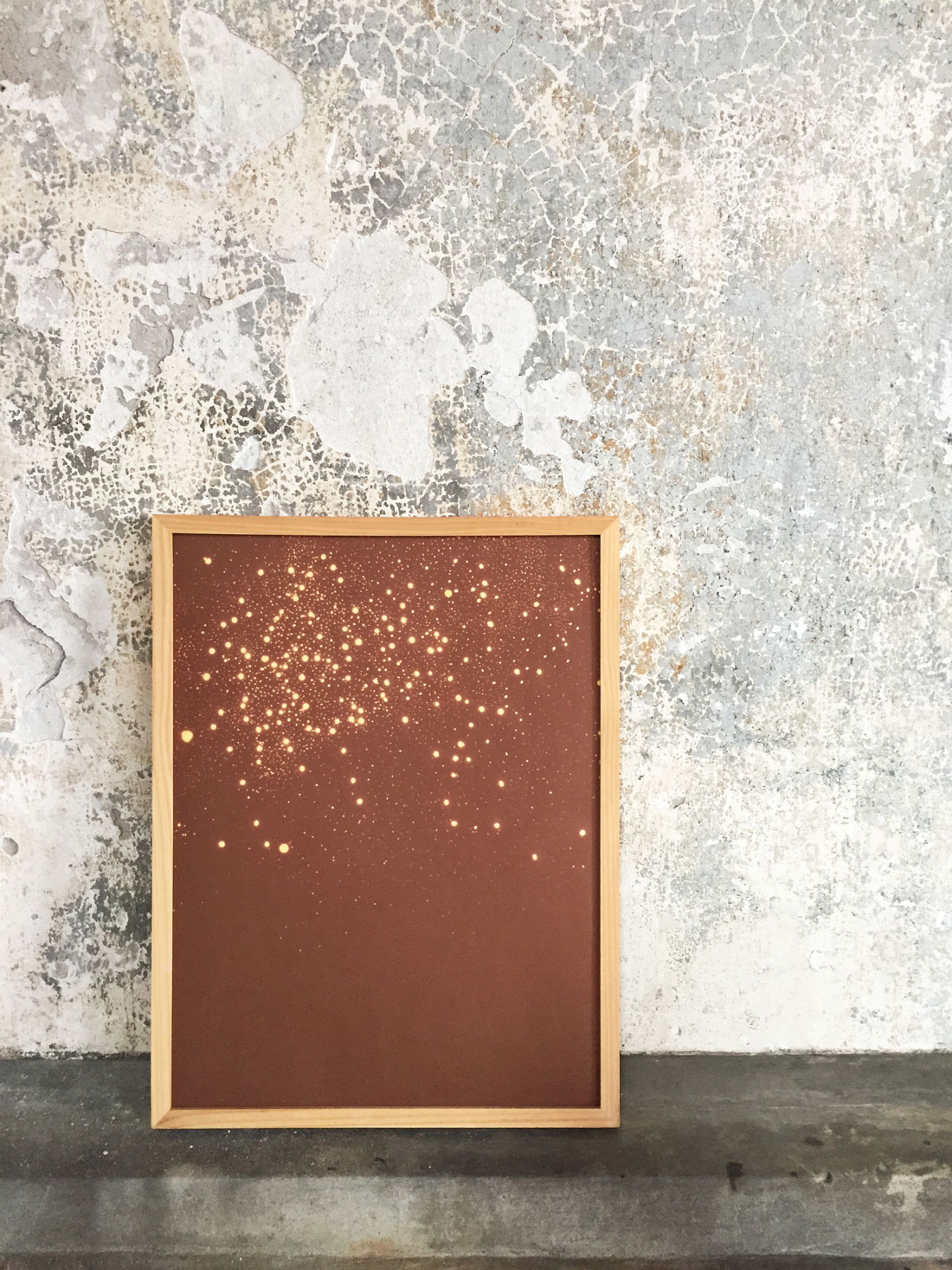Pop. Est. Series
An abstract collection exploring human settlement patterns
This series explores human settlement and rural/urban systems through abstraction and collective patterns. Dots are seen as populations in the landscape, forming relationships and connections through both density and sprawl. Sprawl is a term that has gained popularity in a critical culture that is suspicious of cars and suburban life, and it has become accepted with some certainty of meaning- negative connotations and all. The discussion of suburban sprawl usually unnerves us by highlighting the idea of dependence- we need urban economies, our cars, our infrastructures, and our accepted aesthetic of space. Without dependence on these, our interconnected and complicated relationships will twist and bend, and become uncomfortably obsolete.
Beyond the little pocket of our global community, sprawl acts as an idea of direct physicality- our limbs and postures extending into foreign space. Our extension appropriates new territory by draping, straddling, or enclosing space and making new configurations of self. There’s an element of awkwardness when one might speak about sprawling the body- it’s usually an uncomfortable and precarious position, that no one expects to last for long. It’s an experiment that can easily be withdrawn from a strained position. Sprawling can be a defensive term in which one grapples to take down the enemy by falsely positioning himself as weakened. By testing new manifestations of ourselves, we learn how to negotiate control over our needs and that of the opposition. Extension is exercising militaristic control over nature.
The apparent disconnect between politics and practice has become the cohesive factor of our contemporary life. We preach peace and wage war, we grow local but buy foreign, while we plan big but act in small ways. The confusion between scales has left us in active paralysis, one where slow, smart growth of communities is encouraged, but never at the expense of economic progress. Especially now, people point to conflicting political ideals for a lack of cohesive planning, but I believe that we’re in an anisotropic global space, where the ideas of progress are growing in greater conflict with passing time. Some want heaven, some want oil, some want clean water for their children, while some simply want to enjoy their every moment engaged in comfortable entertainment.
The idea of sprawl is a spatial symptom of our misguided progress. By typical definition, progress implies the bettering of a situation, which, in a linear process, defines an unexplored but definite hierarchy. We don’t know where we are going, but we do know that it will be better than this. The discontent of progress, in the name of the will in power (whomever that happens to be), will leave the structure and soul of any society in a confused and solipsistic state. We appropriate and assume progress in the name of intentions and personalities, for the good of the future, and the unknown. We extend ourselves beyond our immediate needs and wants, in the name of progress. It’s this linear idea that promotes dependence, and leaves us in a comfortless state. The contemptuous relationship breeds conflict and inadvertent situations. These uncomfortable and temporary lapses of relation form the tension that is sprawl. It’s both the cause and the resultant of the undefined, volatile, and subversive acts of disorder.








